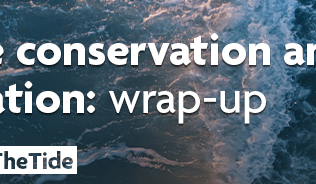In the wake of the referendum result, many in the environmental and science communities are shocked and concerned about the future.
The UK now faces much uncertainty regarding the future of funding for some scientific research, as well as the freedom of movement for researchers and students. Meanwhile, many of the laws and initiatives on which we have relied for several decades to protect our environment have their roots in EU legislation, and there is no guarantee that such protections will be retained once obligations to implement these Directives cease.
In our survey before the referendum, it was clear that the majority of IES members felt we would be better off inside the European Union. Now, it is important for environmental scientists and sustainability professionals to come together to call on the Government to guarantee that environmental protections will be maintained or strengthened, and that scientists from all countries will continue to be supported in conducting world-leading research. The IES remains committed to promoting sustainability across all levels of government and society, and to the practice of evidence-based decision making. As the country must now move quickly to plan for the challenges that lie ahead, we will of course offer our support and expertise to ensure solutions are found which will be positive for people and the environment.
One of these challenges will be replacing some of the strongest environmental laws in the world, with our own legal framework for the environment. It is of course possible that many provisions of EU law could be upheld by the government, and we could even go on to develop stronger UK regulations to protect and enhance the environment. However, given the deregulatory agenda of many pro-Brexit campaigners, this is unlikely. There is, therefore, a risk that without the safety-net of EU Directives the environmental systems we are embedded in and on which we rely could be threatened.
An honest assessment of the motivations of voters is likely to focus on immigration and sovereignty. Opportunists should not be allowed to use this as a chance to dismantle vital legislation. As Matthew Spencer of the Green Alliance has argued, the referendum result does not represent a mandate from voters to “unwind domestic protection”. Areas of significant immediate concern are air quality and whether the UK remains committed to European initiatives on Climate Change and the emissions reduction targets agreed in Paris. In the longer term, amongst others, the major issues of fishing quotas, nature protection, and what is to be done about agricultural subsidies post-CAP must also be addressed.
The 25 year plan for the environment which is being produced by Defra (to fulfil at Conservative manifesto pledge) now gains a new significance. We have previously stated our desire to see Defra produce an ambitious plan, which has roots in legislation. These calls are now all the more important if we are to avoid a ‘race to the bottom’ in which we become the ‘dirty man of Europe’ once again.
Although we are now on a course to leave the EU, another challenge will be ensuring that we can maintain good relations with our European neighbours, and seek continuity in policies on transboundary issues and problems such as climate change and air pollution. As I have written before, it is clear to environmental scientists that environmental systems rarely reflect political boundaries, nor do environmental processes and pollutants respect them. We will be more successful in tackling transboundary problems if we can continue to work together with the EU.
As a final note, perhaps the most pressing challenge which we must now confront is one of communication. Some commentators have argued that the conduct of this referendum campaign are reflective of a transition in the UK to an era of post-factual politics, where fact frequently fails to overcome myth, expert contributions are devalued and critique of un-evidenced claims is ineffective. We must strive to challenge this trend and consider how scientific experts can more effectively make the case for nature, environmental protection and human wellbeing in the inevitable debates to come.
Banner image: A marsh fritillary butterfly (Euphydryas aurinia): a threatened species protected under Annex II of the Habitats Directive. (© espy3008 | Fotolia.com)





